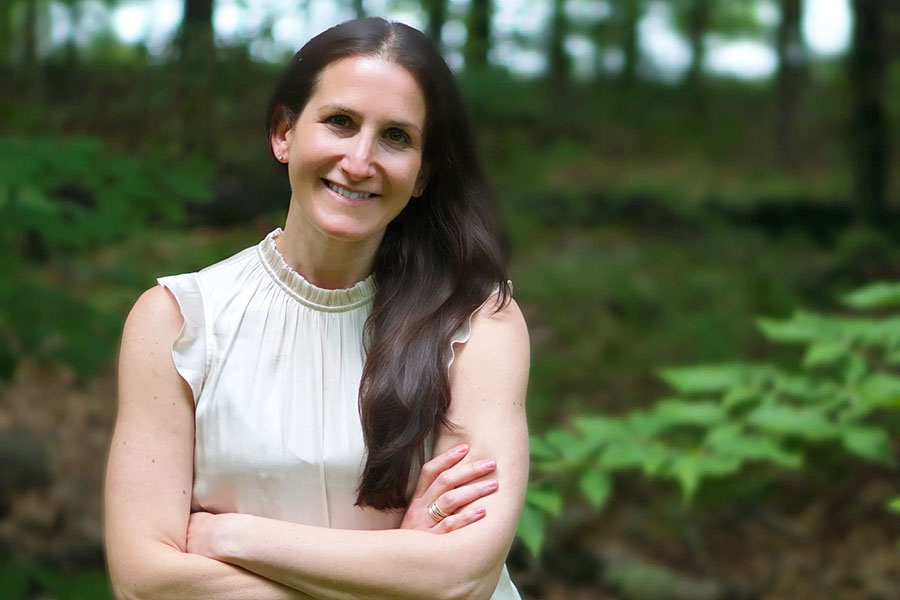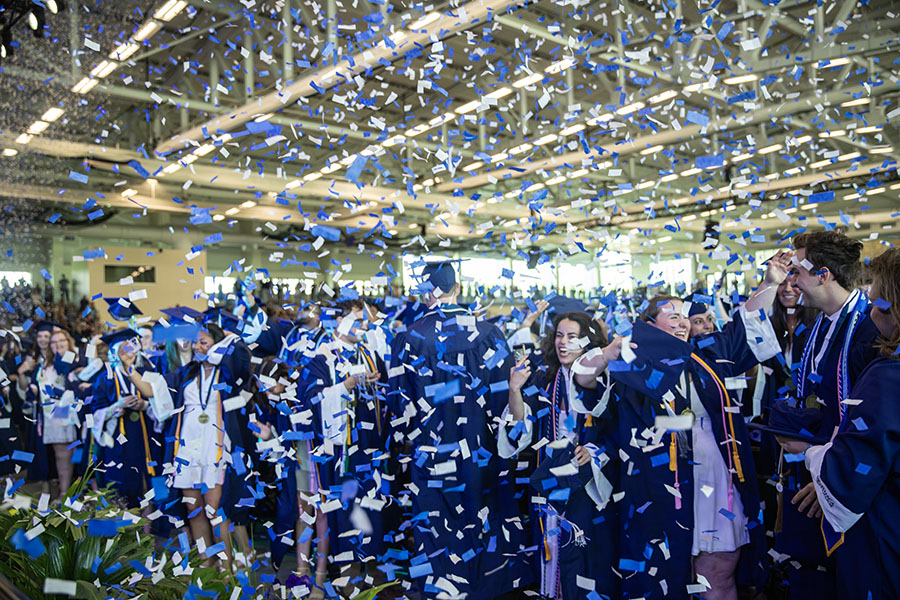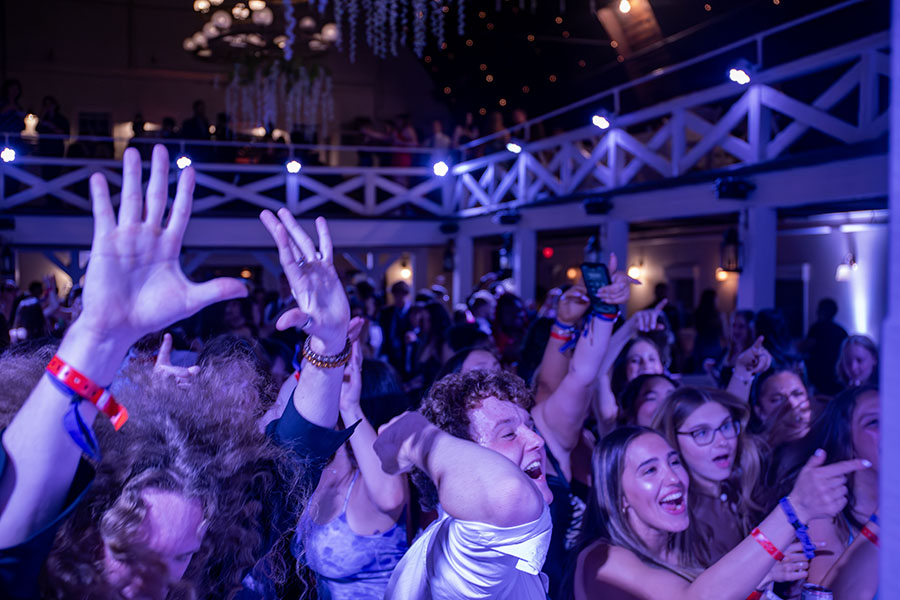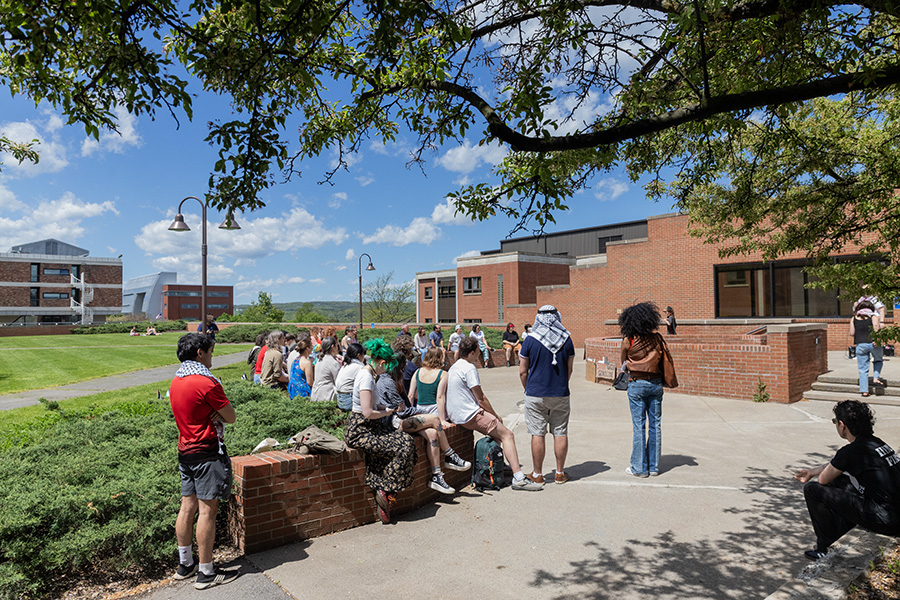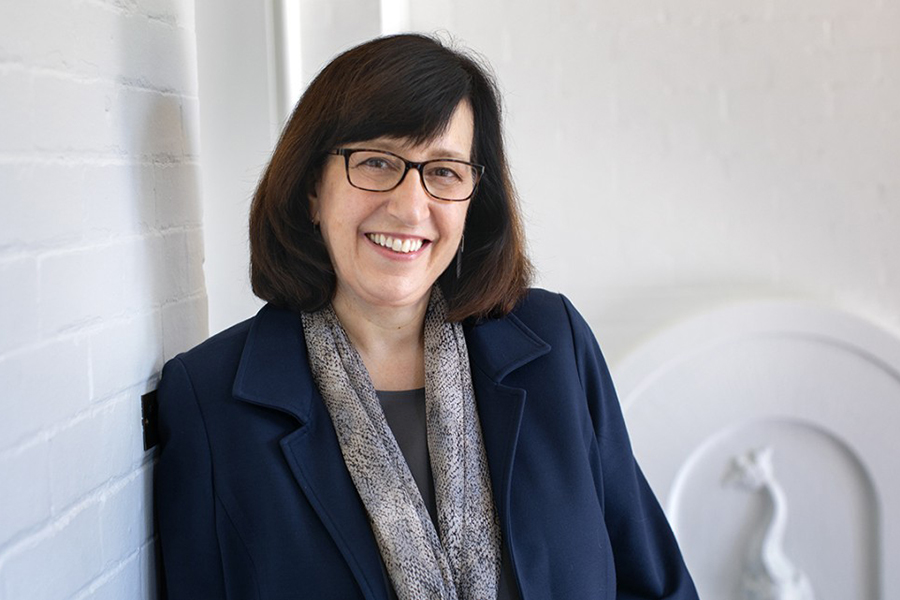After attending an academic leadership workshop in Saudi Arabia in January, Janice Levy, professor of cinema, photography and
media arts, was asked to return to teach a photography class for women at Princess Nora Bint Abdulrahman University. Levy said she decided to use her sabbatical at Ithaca College to spend 11 months teaching and photographing the region.
Levy sat down with Assistant News Editor Taylor Long to share her goals and expectations as she prepares to leave Sept. 17.
TL: What are you doing to prepare for your trip?
JL: A lot of the preparations I’ve been making in terms of the course material — because I don’t know what kind of library they’re going to have — is with books. I’ve also been reading a lot about Saudi Arabia, their customs and their religion — a lot about the history of the country.
TL: And you’re learning the language?
JL: Yes, I was lucky enough to get a grant to buy Rosetta Stone, and I’ve been trying to the best of my ability to spend a couple hours a day learning that. It’s very difficult. Arabic is not an easy language, but it’s amazing how much of it has stuck. I’m not going to speak any of it right now, but I realized how much of it was sticking when I called the Arab consulate. Of course, I’m going to be teaching in English. In fact, they really want a lot of their courses to be taught in English so their students become more proficient in English.
TL: What primary goals do you have for this trip?
JL: One of them, of course, is a greater understanding of their culture. That’s a huge goal for me, and it’s particularly important during these times. Another goal, of course, is to teach them photography because there are so many opportunities to communicate through photography.
Photography is a tool for empowerment. It sounds clichéd to say photography is a window to the world, but it really is in a lot of ways. Saudi Arabia is a country that has been closed off to the world. By giving these young women a tool that will allow them to open up their culture and their world to others … we can gain a better understanding of who they are. If we want to live in a world that is peaceful and tolerant of others’ beliefs, then we have to know. If more people had contact on an individual level, then it would be much harder to hate.
TL: What are you feeling as you get ready?
JL: Excitement. I realized I’m going to be teaching photography to a population that has, for the most part, never seen any of this. Their exposure to visual material has been so limited. Obviously, it’s really exciting to teach photography here at Ithaca College, too, and I’m not saying it isn’t, but here we have a population that’s completely visually literate, and for the most part, [students here have] seen a lot of the photographers whose work I’m showing [them], or [they’ve] seen other photos [they] can compare it to. But in Saudi Arabia I’m imagining that most of the material I’m going to be showing top students will be brand new to them.
TL: You see a clean slate?
JL: It’s unbelievable to present images to them they’ve never seen before and understand how they view these images from a completely different cultural perspective than the audience I’m used to speaking with. I’m really curious to see what they’re going to come up with and what kind of cultural references they have that [come] up in their images — because these are women who are, for the most part, limited in terms of how they can move around outside. It wasn’t until a few years ago that the ban was lifted on photographing outside. When these women are out in public they have to be fully veiled. You’re talking about women who are wearing black, wearing head scarves and wearing face masks. The only thing they can see through is this little slit in their eyes.
TL: What impression do you hope to have on them as a professor?
JL: I’m going to be the only American teaching, so I’m basically bringing my world to them. I guess because of that I’m, in a sense, an ambassador for the United States, for Ithaca College. I hope they get from me my passion for life and for photography.
TL: What experiences do you hope to bring back to the college?
JL: I’m hesitant to talk about all the photography that I want to do there, because you never know until you get there how much access I’m going to have and the sort of direction things will go. Usually when I go to another country, I throw my cameras around my neck and walk around the streets, and I do whatever I want. But where I’m going to be able to walk is up in the air. There will be plenty of photographs for sure, and I’m going to be doing a lot of writing as well. I’m so excited to be sharing this experience with the Ithaca College community. My students will certainly benefit from this.


